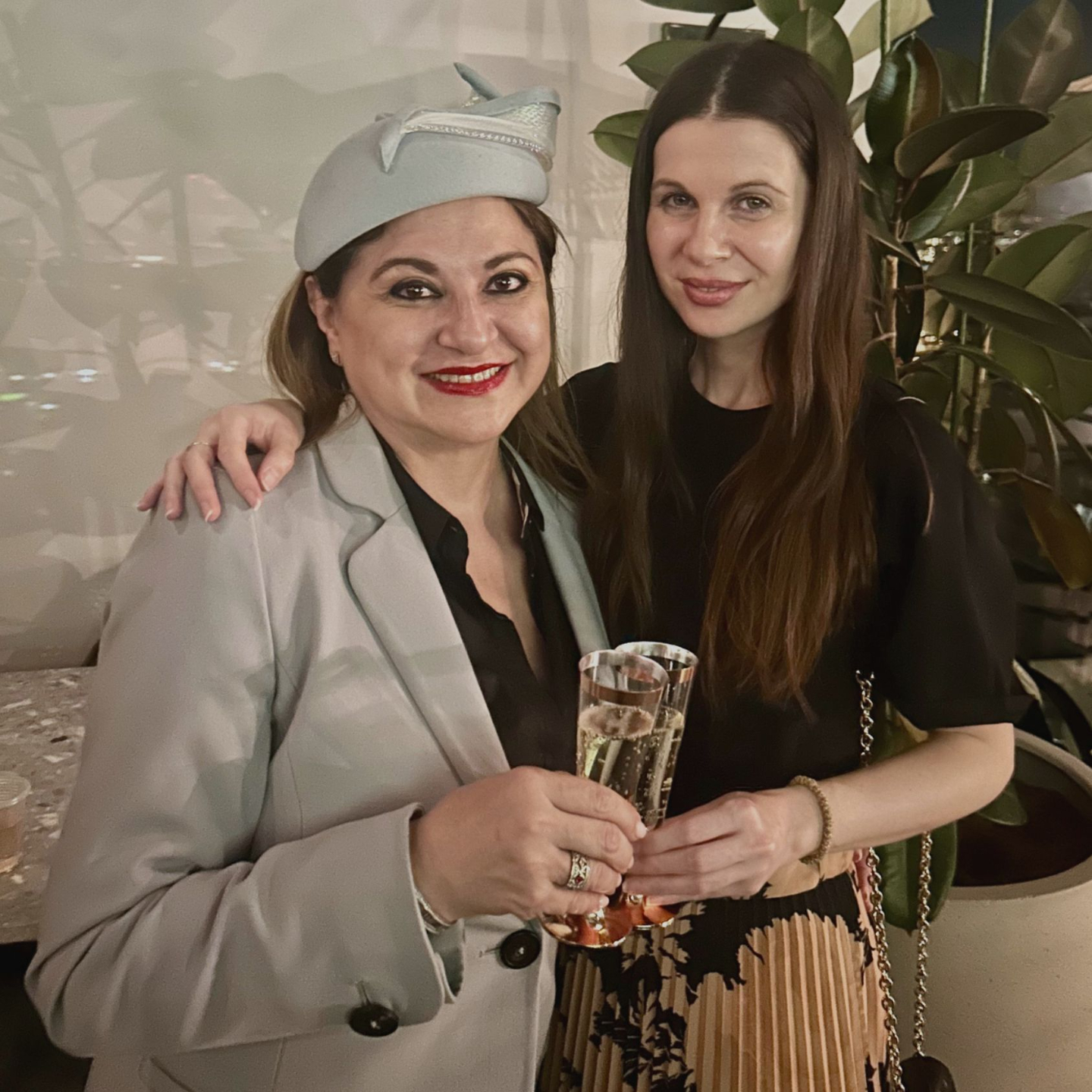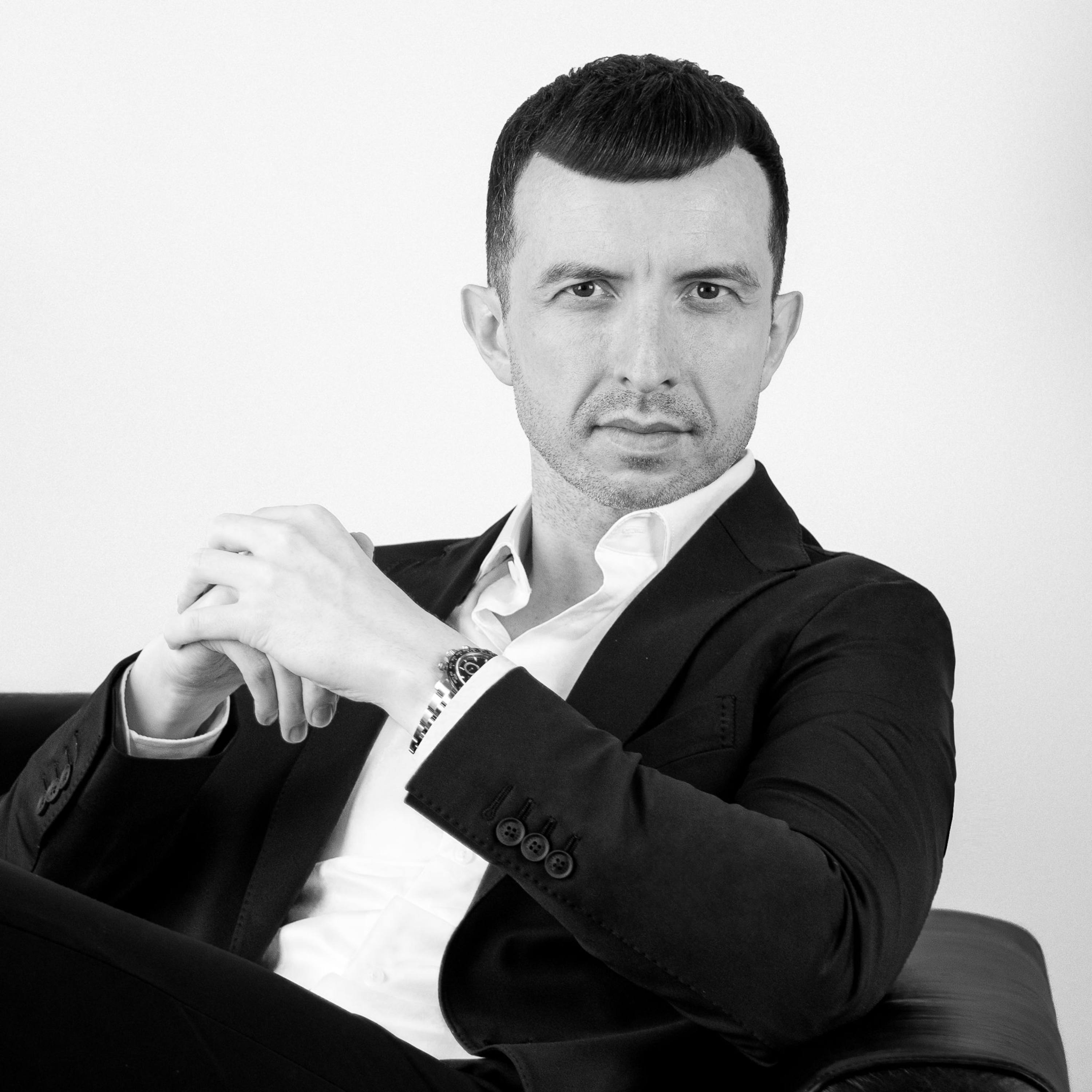Mental Health And Men: Removing The Stigma With Mark Sephton, Personal Mentor to Entrepreneurs
Feb 10, 2022
Today in the Inspiration Blog Series, we are talking about the negative stigma around mental health and how we can support men in dealing with mental health issues. I am joined by Mark Sephton, an Author, Speaker, Personal Mentor to Entrepreneurs and regular contributor to Entrepreneur and Brainz Magazine. Mark speaks about the social conditioning preventing men from openly expressing their emotional needs and shares what inspired him to write his book "Mark of a Man". He also opens up about his divorce and what helped him overcome that difficult period.
Hello and welcome, Mark. I am delighted to have you as our guest today, talking about the stigma around mental health, especially when it comes to men. Before we dive into the topic, can you share a little bit more about yourself and what led you to enter the exciting world of entrepreneurship?
It’s interesting, we all have people in our lives that have a direct impact and influence on our own renaissance. For me, my grandparents had a lifestyle of entrepreneurship which I believe opened my eyes and imparted something into my own curiosity of entrepreneurship. The main essence of entrepreneurship is to solve a problem, I mean that's the fundamental responsibility of all businesses - what problem do I solve bringing this service or product to market? So my grandparents had a huge influence on me. Outside of this influence, I honestly believe our gifting makes room for us, meaning whatever talent and gift we possess if we utilise it, express it and grow it, it will find an active role in our life mission and in our everyday. I have worked with people my entire life; I have led, managed and developed people through my career; when you know you’re good at something then you have to keep sharpening that sword and staying in that lane so your gift expands and becomes the sweet spot of your existence. So before I created my first service-based business, I had the knowledge and experience of developing people and operations through firstly my own working history and then expressed through my own service-based business.
I have always loved people and I have always enjoyed drawing out the best in others, hence why I love to coach and mentor, write books and articles for magazines like Entrepreneur or why I emcee or key note at events; I love to take my learnings, failings and successes and create content around my experiences. I am fascinated by human behaviour and there is no better way to understand human behaviour than having a Podcast ( Brainz Magazine), which enables you to interview people at the very top of their game and pick their brains and find out what makes them tick.
In your new book, “Mark of a Man”, you talk about how important it is for men to be aware of and not suppress their emotions and needs. What inspired you to write this book?
We know over the last 10 years campaigns encouraging men to talk have really been at the forefront of society. When I went through my divorce, I realised there was very little help, support or resource. Plenty of groups, forums etc for women but not so much for men. So I wanted to create a book which really opens the lid on what a man feels when he goes through something like a divorce, exploring the emotions and what they mean and how to navigate through the difficult path of something like a divorce. Mark of a Man is not necessarily targeted at men whom have gone through a divorce but it's a great lens for me to articulate my point and show the vulnerability and honesty in order for men to find their way through the difficult terrain of hardship, and for women to trust what I am saying is backed up by my own personal experience.
I also wrote Mark of a Man because I find writing cathartic; it helps with your own healing; it helps in you understanding your own thoughts when you put pen to paper. I have always said none of us can lead anyone from a place we haven’t been ourselves. I know what it’s like to cry yourself to sleep; I know what it's like to be away from your children; I know what it's like to start over.
As men, we need to understand what a real man looks like and what this world really needs a man to be, not just what we need to be to the world, but also what we need to be for our families and most importantly - ourselves.
I wanted to capture the responsibilities and expectations of being a man in today's evolving and ever-changing world. I wanted to talk about the difference between the masculine and feminine energy. I wanted to challenge men in the way they communicate with themselves and the way they may see women, and even how they may talk about women in a not so positive way. As a man, I am challenging myself how I am showing up in the world and, in doing so, challenging other men around me.
Based on your personal experience and observation, why would men prefer not to talk about their mental and emotional struggles?
It’s mainly a social stigma which comes from ridiculous sayings like “real men don’t cry “ - newsflash. Real men cry; they express what they feel in a healthy and safe way. We have been conditioned for years to keep in our feelings, to keep it together, if not you’re showing weakness. We have to break this ideology. It starts with one man expressing himself in an honest and healthy way; if Mark of a Man rescues one, inspires one, heals one, liberates one then that will start to change the trend. Whenever I am in conversations with women about men, they wish for one thing - that men be vulnerable in what’s really going on inside them; if we are not being vulnerable perhaps it's because we don’t feel safe. Can I really share my honest feelings without it being used against me or turned against me? This is a big problem in why men don’t want to open up - it's the fear of it being used against us, bringing shame and judgement.
Men need role models too. We need the previous generation of men to really open up but if I am honest, it’s the generation I find myself in which will pave the way for those coming up behind me- young men like my son whom knows the importance of him expressing how he feels. The biggest challenge for men will soon be not that they don’t express but how they express sometimes comes across as rude, aggressive and not well thought through. My son is 12, a young man. He now expresses how he feels after years of being frustrated in not being able to articulate his thoughts and feelings. He has made great progress; his challenge now is how he expresses what he now understands and feels, his tone in particular is something as parents we are working on. As with most human behaviour, we follow more by what we see than by what we hear.
I am not sure men prefer not to talk about things, I think it's more about the fact they don’t know how. So if books like mine can add a little frame, a little understanding and a blueprint for expression, then perhaps our mental health will begin to recover and improve. If we want men to talk, then it is going to take one man to go first, perhaps that man is you?
How can we, as a society, break the negative stigma around mental health and support men in feeling comfortable talking about their mental health?
It comes down to safety - we don’t want to be judged or ridiculed and we certainly don’t want our vulnerability to be used against us and, unfortunately, that does happen. If you want a man to open up and he does and then you use against him his own vulnerability, he’s only going to go inside himself. So when we talk, really listen, hold space and do not patronise. It is famous in knowing men don’t like going to the doctor. I have heard countless times of men that have had an early grave because they didn’t get checked out for whatever reason. We are conditioned to be invincible and sometimes a man's ego gets in his way. We need to be challenged but challenged in a way that doesn’t complain or nag but encourages and supports the beautiful role a man plays in society. Continue to emphasise that asking for help, opening up is actually a sign of strength and masculinity, of knowing our own limitations, fears and struggles and being gentle and affirming will go a long way.
What advice would you give to men who may be going through some tough times and struggling emotionally?
Honour whatever you feel, there is a difference between sitting in something and wallowing in it. I like to journal and write down what I feel. I take a piece of paper and I write down my emotions; I then think about why I may feel this particular emotion and what this emotion is really telling me about this situation. I find this process very simple but extremely enlightening.
I also pause and remind myself our life is in seasons- no one season lasts for a lifetime. When you’re going through difficulty, it is sometimes hard to think about anything else but the calamity you find yourself in, however, it does pay to remind yourself this is a temporary situation and not a permanent one. We know that our current thoughts produce feelings and our feelings lead us to action. I am a big believer in changing the way we frame things or the narrative we tell ourselves within our own mind. If we can change the way we see things or change the story we are telling ourselves about a certain situation, we then start to change the way we feel about it. When our feelings change, which is a big part of emotions, we can then make healthier and more positive choices because our feelings are no longer fighting against us but working with us to help us move forward.
Thank you for joining us on the blog, Mark. Where can our readers learn more about your work and get a copy of “Mark of a Man”?
If you head over to marksephton.com, you will find various links to how you can find out more about me and my work. Mark of a Man is available at all major book retailers all over the world. Feel free to connect with me on all socials, I would be happy to answer any further questions or explore the opportunity to work together.



